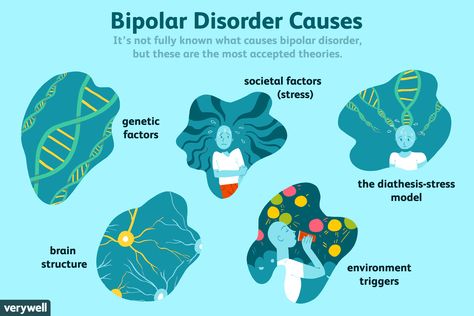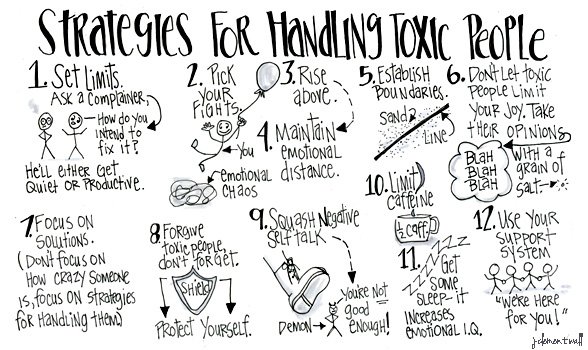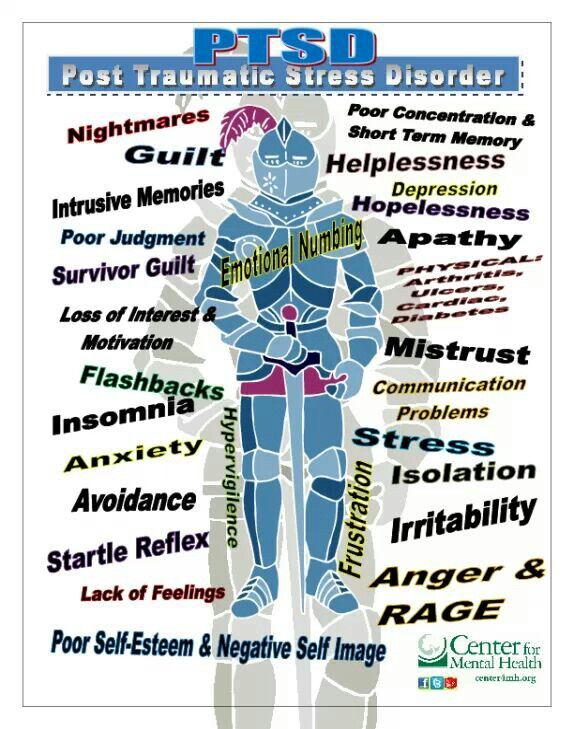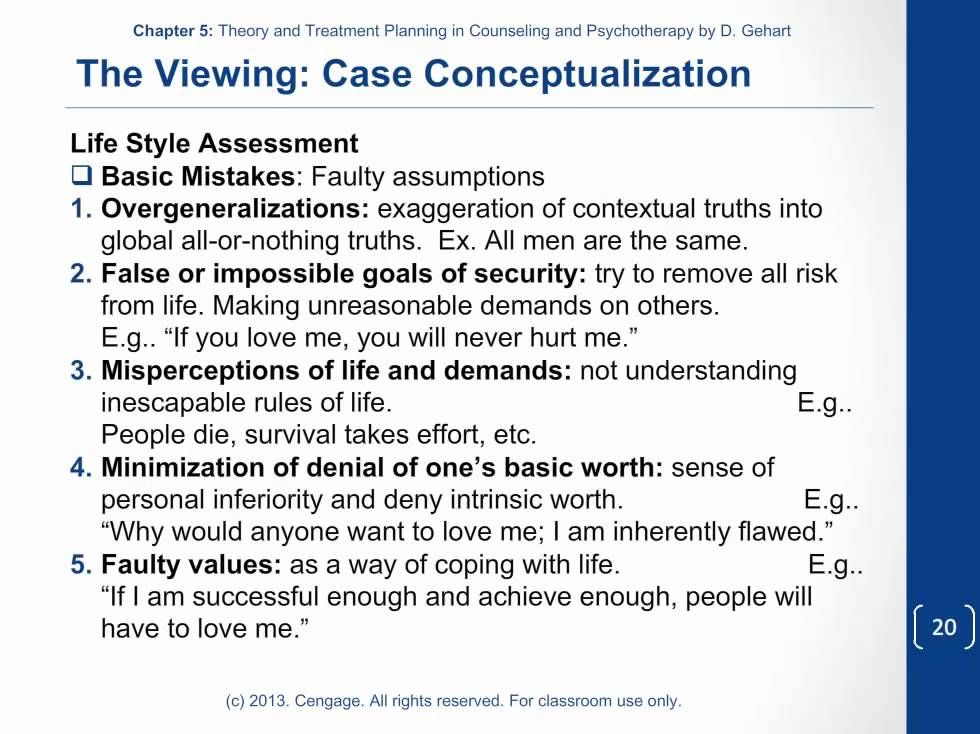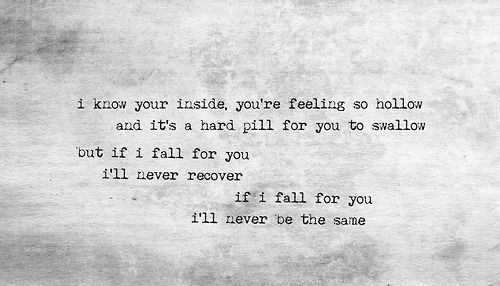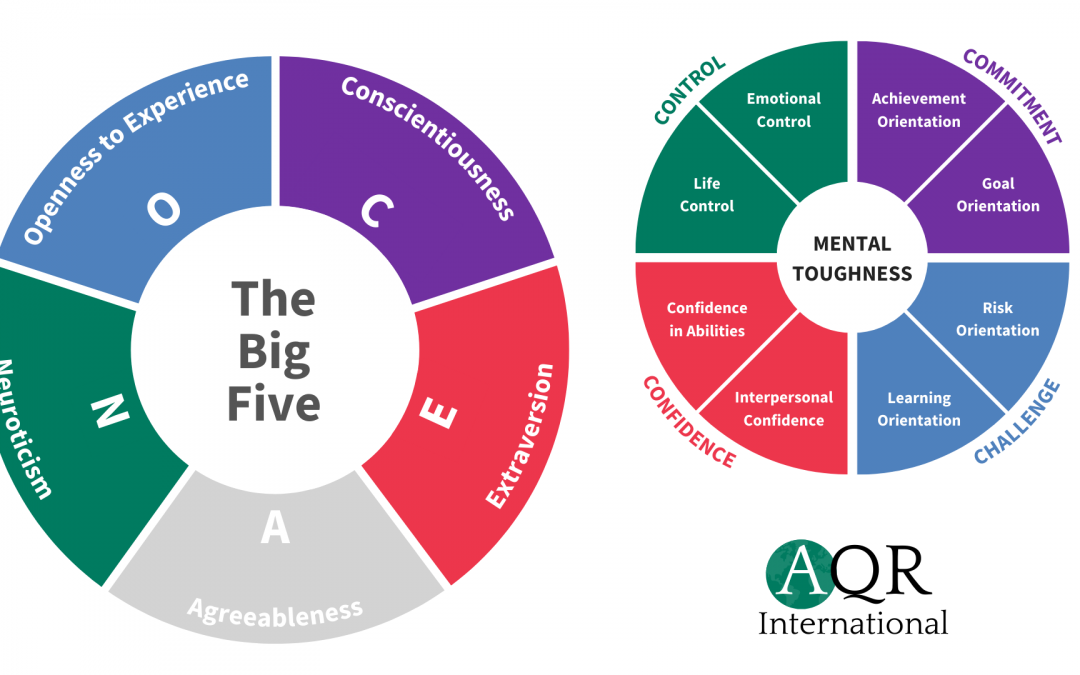Living in your head
Living in Your Head Too Much? 4 Causes and Solutions
Source: christels/Pixabay
Do you obsess and worry all the time? Struggle to make even small decisions? Are you self-critical? Feel easily distracted and unable to focus?
Too many of us live in our heads all that time. The fact that our mind is constantly producing thoughts isn't necessarily the problem—this is what our minds do. The problem arises when we feel we have no control, when our minds are like a runaway horse that we barely hold on to; we often only go where the horse takes us.
Anxiety is the driver here. But while for some, anxiety is a felt physical experience—heart palpitations, stomach-churning—for many of us, it is about that swirling mind. Like the somatic symptoms, the effects can come in several forms. Here are the most common ones:
You're constantly worrying
This is generalized anxiety where you constantly live in a future of "what if." Your brain is always looking ahead, looking around corners, going down rabbit holes of worst-case scenarios. You are hyperalert, a childhood coping skill that continues to operate even though you are no longer a child.
You struggle to make decisions
Anxiety obliterates priorities and perspectives. Everything feels important; every decision becomes a big decision—what to have for lunch carries the same weight as whether or not to take that job or have a baby; it's no wonder that you are constantly feeling overwhelmed. Sometimes the underlying driver is simply the fear of making a "mistake"—that you'll order that sandwich, it will taste awful, and you will scold yourself the rest of the day. Or the driver may be upsetting others—good decisions require that everyone be happy—a tall order.
You are perfectionistic
Here your anxious brain is doing its best to come to the rescue. If you don't want to worry about making mistakes or getting others upset, you need to work harder to be more perfect, be more careful, and be more planful. No wiggle room here.
You are controlling
Here you keep what-ifs at bay by rigid control. You know what you are doing on Tuesday because you always do the same thing on Tuesday, so there is nothing to worry about. If those close to you do something that threatens to throw off what you have planned, your default is to get them to do what you think they should do; what to you just "makes sense." Their problem is that they feel pressured, bullied, or controlled.
You know what you are doing on Tuesday because you always do the same thing on Tuesday, so there is nothing to worry about. If those close to you do something that threatens to throw off what you have planned, your default is to get them to do what you think they should do; what to you just "makes sense." Their problem is that they feel pressured, bullied, or controlled.
The way out
When anxiety is running is the show, the way out is a two-step process: awareness and getting into your gut.
Worrying
Time to get your rational brain back online. This means you're pulling on the horse's reins and controlling it rather than holding on as it runs. To do this, slow down and focus on the present: Is there a real problem, not the possible what-ifs, that you need to fix right now? If yes, take decisive action to correct the problem. If not, the problem is slowing the horse. Focus on calming your brain through exercise, deep breathing, meditation, and talking to a friend.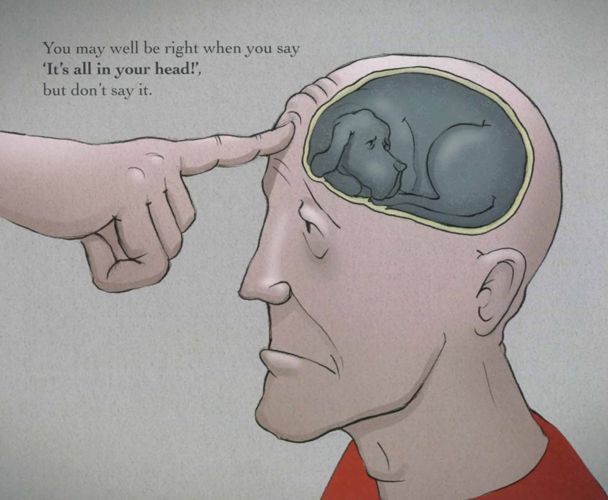
Decisions
If your anxious brain tells you everything is important, you need to step back and let your rational brain set your own priorities. Lunch is not in the same category as a job or baby. Experiment with treating the lunch for what it is—a minor decision that demands minor energy. But to help you do this, also activate your gut—use those gut reactions as vital information to counter the worry and shoulds in your head.
So if you're dying to have pizza, get it now. Take it up a notch and step back and ask yourself if you really enjoy your job? Do you want to have a baby?
Perfectionistic
This is about tolerating making mistakes. You need to reset priorities and find out that the "mistakes" are not the end of the world despite what your anxious brain is telling you. But you'll only find this out by actually doing it. Take the baby-step risk of being less perfect to find out that no one, besides you, cares.
Control
Awareness kicks in here—that you realize you are controlling yourself and others. Good for you. Next, you want to redefine control as anxiety. When you feel the need for control, rather than focusing on getting others to do what you want them to do, ask yourself: What are you worried about? Is it a rational or irrational problem? If rational, act independently. Finally, challenge yourself to step outside your comfort zone by experimenting with giving up control by letting situations simply unfold or by letting others be in charge. Here you will feel the full effects of your anxiety, but push through to the other side and find out that it turned out not exactly as you wanted, but good enough.
The goals here are to be aware of irrational, anxiety-driven behaviors—the control, fear of making mistakes—and rewiring your brain by listening to your gut, surfing through your anxiety to ultimately become more flexible.
To find a therapist, please visit the Psychology Today Therapy Directory.
Living Life? or Living in your Head?
Living Life? or Living in your Head?
Posted on by Michael Parker, LCSW
A defining characteristic of mental health struggles is that they can cause us to become stuck in our heads. But what does that mean exactly, “to be stuck in one’s head?” If you’re like many people, it’s probably become so natural to engage with every thought and feeling that enters your mind, you may not even notice yourself doing it. Here are some signs that you may be spending too much time in your head…
- You spend a lot of time trying to figure out what others are thinking.
- You ask yourself why you have certain thoughts, and tend to believe that all thoughts happen for some purpose or reason.

- You assume that all of your emotions happen for good reason and then respond accordingly, avoiding things whenever you feel anxious or fearful, punishing yourself whenever you feel guilty, lashing out at others whenever you feel angry.
- You focus a lot of attention on negative thoughts you have about yourself.
- You review incidents from the past over and over again with no productive outcome.
- You spend a lot of energy trying to remove doubt and uncertainty from situations that are unavoidably uncertain.
- You try to mentally “figure things out” that can’t really be figured out.
- You worry about circumstances that can’t be changed, or at least can’t be changed by any mental activity on your part.
- You focus on rigid, inflexible thoughts about a situation that only make you more upset.
- In general, you spend a lot of time trying to control your mental experience, trying to get rid of, or avoid, thoughts and feelings you don’t like.
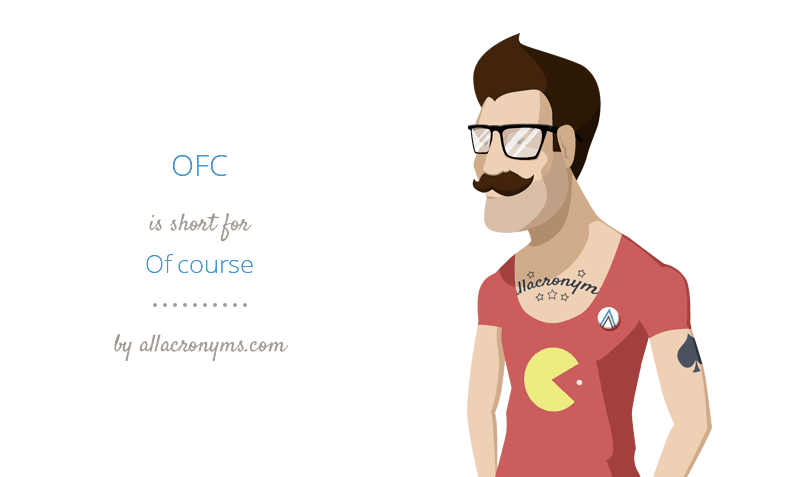
If any of these sound familiar, you may be spending too much time in your head. But rest assured there’s hope. You can learn to direct your attention towards other parts of life. Here are a few quick tips to help you practice getting out of your head. For those of you who are masters at living in your head, keep in mind that these skills may take a lot of time and practice.
Catch yourself in the habit: Start to notice which thoughts tend to “hook” you in. You will most likely find a pattern, with the same types of thoughts grabbing your attention time and time again. The trick to unhooking yourself from these thoughts is to stop trying to get rid of them (this only makes things worse). Acknowledge their existence, and let them hang out in your head if they want to. But don’t give them your attention. Don’t respond to them. Don’t argue with them. And don’t take them too seriously.
Get in touch with your senses: When you notice yourself getting hooked in by thoughts, try to reconnect with the outside world, the world of your five senses.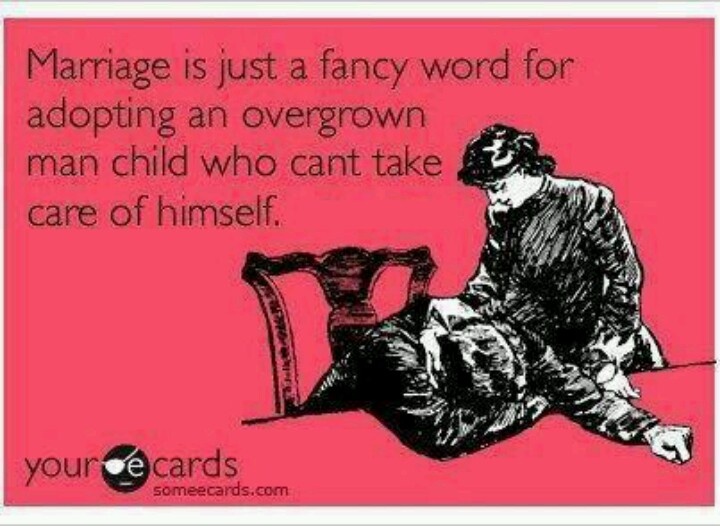 See if you can notice three different sounds in your environment you hadn’t noticed, or three objects in your vision you weren’t aware of. Can you identify any smells? What textures can you feel with your fingers? If you can focus on these things, you will notice your consciousness returning to the world outside of your head.
See if you can notice three different sounds in your environment you hadn’t noticed, or three objects in your vision you weren’t aware of. Can you identify any smells? What textures can you feel with your fingers? If you can focus on these things, you will notice your consciousness returning to the world outside of your head.
Take some time to focus on what’s important to you: Get in touch with your values. Remember who and what are important to you. See if you can notice any behaviors or activities that bring you closer to these things. Ask yourself what the person you want to be would be doing with their time. And see if you can start to spend more of your time doing these things. This will help you focus your attention on what you want to be doing, rather than what you don’t want to be doing.
Give these tips a try, but don’t get frustrated if change doesn’t come easy. Change is hard work. There’s no doubt about that. But with a little practice you can learn how to spend less time in your head. And more time living your life.
And more time living your life.
The meaning of Zemfira's song "Live in your head"
"Live in your head" is a landmark track for Zemfira's work. It was this song that gave the name to the album of the same name, released in 2013. The singer rarely pleases fans with new songs and albums, but each line written by her can touch the deepest corners of the human soul.
"Live in your head" is a very complex and adult song, which has little in common with the previous work of the "scandal girl" - Zemfira. That is why, many are puzzled by the question of what the song "Live in your head" is about. Of course, this song is about love. About heavy, confusing love, which is about to become insanity. Let's take a closer look at the song in order to understand the whole meaning of Zemfira's song "Live in your head."
The introduction to the composition is the chorus. The first lines of the song are its title. The phrase "live in your head" is metaphorical, as is the whole song.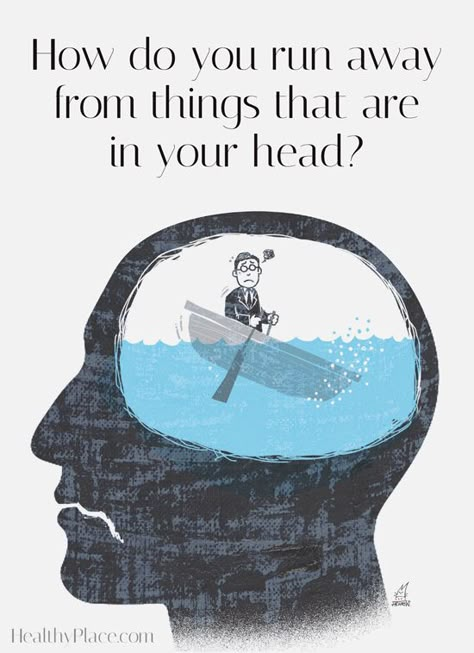 This life in someone else's head is a constant presence in someone's thoughts, an obsessive desire under no circumstances to let go of your love. This obsession does not pass without a trace, it has its own terrible consequences, which consist in “murder”, “unconscious” and “accidental”. The lyrical hero of the composition literally smothers the subject of his sighs with feelings.
This life in someone else's head is a constant presence in someone's thoughts, an obsessive desire under no circumstances to let go of your love. This obsession does not pass without a trace, it has its own terrible consequences, which consist in “murder”, “unconscious” and “accidental”. The lyrical hero of the composition literally smothers the subject of his sighs with feelings.
In the first verse of , we imagine the life of lovers: joint travels and long walks - “listened to the Pacific Ocean”, “saw cities”. All words are imbued with serenity and measuredness, but they do not feel the happiness that should invariably accompany loving hearts. The following lines are dramatic, because it is in them that the emotional breakdown lies: the characters believed in eternal love, thought that they would have a fabulous endless feeling, but reality treated them more severely, killing these hopes.
The second verse of begins with the phrase "tangled in complete darkness. " These lines should not be taken literally either. The darkness that Zemfira sings about is not the time of day, but rather, a certain state of mind. The heroes are in a difficult situation, they do not see further prospects, it even seems to them that the world is moving away from them. Hence the next line of the song: "turn on your lights." Not relying on the world around them, which seems to be impenetrable darkness, the heroes light those very fires, which, most likely, are their own worldview. These phrases show the opposition of the small world of lovers to the cold and empty surrounding space. “Crashed the sky in the room” is a line that is hard to understand. Perhaps here Zemfira meant that the relationship of the heroes is destructive for both of them, and at any moment they can lead to the same catastrophe as the fall of the sky. The phrase itself, based on this, can be interpreted as a quarrel. This is confirmed by the final couplet line - "they were left completely alone." Loneliness here, apparently, is used not in the sense of loneliness together, as opposed to the world, as it was written before, but precisely the loneliness of separated people.
" These lines should not be taken literally either. The darkness that Zemfira sings about is not the time of day, but rather, a certain state of mind. The heroes are in a difficult situation, they do not see further prospects, it even seems to them that the world is moving away from them. Hence the next line of the song: "turn on your lights." Not relying on the world around them, which seems to be impenetrable darkness, the heroes light those very fires, which, most likely, are their own worldview. These phrases show the opposition of the small world of lovers to the cold and empty surrounding space. “Crashed the sky in the room” is a line that is hard to understand. Perhaps here Zemfira meant that the relationship of the heroes is destructive for both of them, and at any moment they can lead to the same catastrophe as the fall of the sky. The phrase itself, based on this, can be interpreted as a quarrel. This is confirmed by the final couplet line - "they were left completely alone." Loneliness here, apparently, is used not in the sense of loneliness together, as opposed to the world, as it was written before, but precisely the loneliness of separated people.

